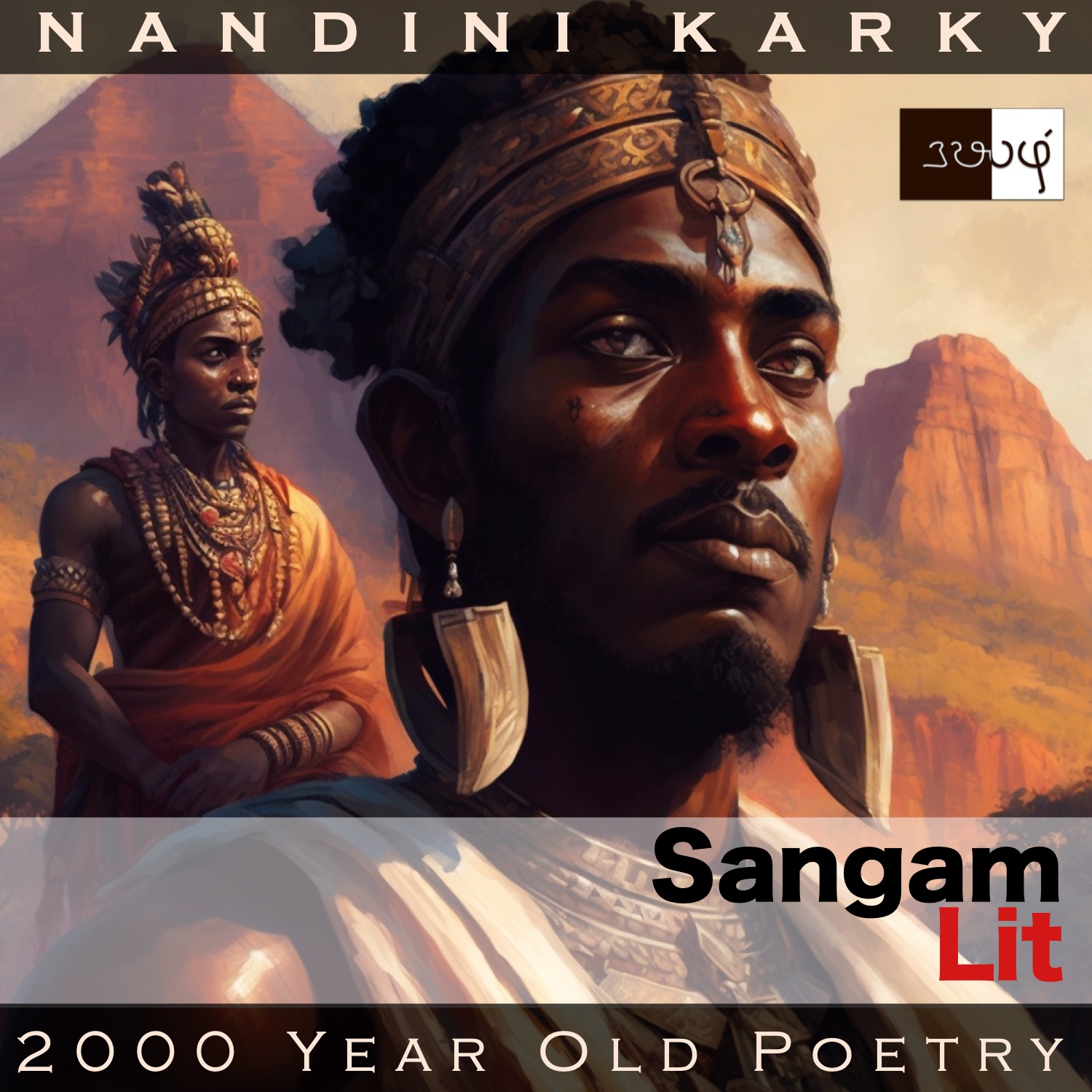Podcast: Play in new window | Download
Subscribe: Apple Podcasts | Spotify | Amazon Music | Android | iHeartRadio | TuneIn | RSS | More
In this episode, we perceive the poet’s bond with the king, as portrayed in Sangam Literary work, Puranaanooru 110, penned about the Velir King Vel Paari and sung to the three great rulers by the poet Kabilar. The verse is situated in the category of ‘Nochchi Thinai’ or ‘King’s defence from within’ and reiterates the pointlessness of a war with the king.

கடந்து அடு தானை மூவிரும் கூடி
உடன்றனிர் ஆயினும், பறம்பு கொளற்கு அரிதே;
முந்நூறு ஊர்த்தே தண் பறம்பு நல் நாடு;
முந்நூறு ஊரும் பரிசிலர் பெற்றனர்;
யாமும் பாரியும் உளமே;
குன்றும் உண்டு நீர் பாடினிர் செலினே.
A song that sounds like an echo of the previous one. The poet’s words to three great rulers – Chera, Chozha and Pandya kings, when they had laid siege to Paari’s Parambu region, can be translated as follows:
“Even if all three of you come there and attack with your formidable armies, it would be hard to conquer Parambu. This fine country of Parambu has three hundred towns. All those three hundred towns have been gifted away to supplicants. Paari and I remain; Also, there’s the peak for you, if you go to him, singing!”
Let’s take another look at the details herein. The poet declares that even if all three kings attack with the combined strength of all their armies, Parambu is never going to fall. Then, he talks about how this domain of Parambu ruled by Paari had three hundred towns and how all three hundred of the same have been granted as gifts to supplicants. At the end of all this giving away, only he and Paari are left, the poet tells the three kings, and adds, there’s the mountain peak too, if those three kings decided to take the role of supplicants and went singing to the court of Paari.
In many ways, this verse repeats the thoughts we have encountered previously. One extra detail we get is about the three hundred towns belonging to the Parambu region, ruled over by Paari. In the poet’s words that only Paari and he were left to be given away, we can infer how the poet considered himself as belonging to Paari, thereby declaring his deep allegiance to this king. Heartening to see nuanced emotions of loyalty amidst these accounts of war and conflict.




Share your thoughts...